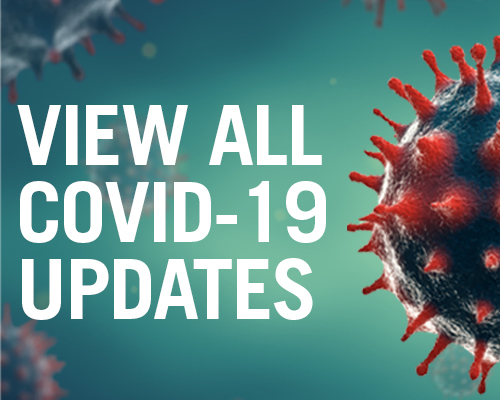Open Letter Calls on CV Societies to Discourage CMR After Mild COVID-19
Media coverage of several small CMR studies has led to an uptick in unwarranted CMR requests, says Venkatesh Murthy.

(UPDATED) An international group of physicians has signed on to an “open letter” sent to cardiovascular societies in the United States and Europe calling for “clear guidance discouraging CMR screening for COVID-19-related heart abnormalities in asymptomatic members of the general public.”
Venkatesh L. Murthy, MD, PhD (University of Michigan, Ann Arbor), led the initiative; fifty physicians ultimately signed the letter.
“We work in different areas, such as public health, internal medicine, cardiology, and radiology, across the globe, but are similarly concerned about the presentation, interpretation, and media coverage of the role of cardiac magnetic resonance imaging in the management of asymptomatic patients recovered from COVID-19,” they write.

“Some commentators have raised concern that COVID-19 may lead to frequent, serious long-term cardiac sequelae even among people who have had mild infection and are currently asymptomatic,” the letter reads. “We wish to emphasize that the prevalence, clinical significance, and long-term implications of CMR surrogates of myocardial injury on morbidity and mortality are unknown. Further, it is unclear if the elevated T1 and T2 flagged in these studies are clinically significant, particularly in isolation, if treatment is needed, and, if so, what the management should be. These important questions should inspire future prospective studies.”
Contacted by TCTMD, the Society for Cardiovascular Magnetic Resonance (SCMR), responded to the letter saying: “SCMR agrees that the routine clinical use of cardiovascular MRI in asymptomatic patients with recent or prior COVID-19 infection is currently not justified based on the recent preliminary scientific publications, and it should not be encouraged.”
But, they continued, existing clinical indications for CMR “are well described in the recent American College of Cardiology guidance document, to which SCMR has actively contributed. We encourage clinicians and the media to refer to this document when discussing the current clinical use of CMR in COVID-19 patients. While CMR is an excellent imaging tool for diagnosing myocarditis in patients with suspected disease, we do not recommend its use in patients without symptoms.”
SCMR agrees that the routine clinical use of cardiovascular MRI in asymptomatic patients with recent or prior COVID-19 infection is currently not justified based on the recent preliminary scientific publications, and it should not be encouraged. Society for Cardiovascular Magnetic Resonance
American College of Cardiology (ACC) President Athena Poppas, MD (Lifespan Cardiovascular Institute and Brown University, Providence, RI), also responded to the letter in an email to TCTMD. “We appreciate the authors’ concerns about the potential mischaracterization of the long-term impact of myocarditis after a COVID-19 diagnosis and the need for well-designed clinical trials and careful, long term follow-up,” she said. “The pandemic is requiring everyone make real-time decisions on how to best care for heart disease patients who may be impacted by COVID-19. The ACC is committed to helping synthesize and provide the most up-to-date, high-quality information possible to the cardiovascular care team. We will continue to review and assess the scientific data surrounding cardiac health and COVID-19 and issue guidance to help our care team.”
Harms, Not Helps
The letter comes within days of a JAMA Cardiology study by Rajpal et al conducted in 26 Ohio State athletes that found signs of cardiac damage and myocarditis on CMR in 15% of players who’d been mildly symptomatic or asymptomatic. Also of note is a paper by Puntmann and colleagues, which made headlines worldwide in August, amplified when a number of errors were identified in the paper. They’ve since been addressed. A third CMR study, from China, also fueled this conversation.
He added that he has made informal inquiries to a number of medical journals or had conversations with editors about submitting the letter for publication, but concluded that a medical journal was unlikely to publish the letter because the format is “unsuitable” and “atypical.” Instead, he’s offered the letter to medical news organizations to publish and hopes it will generate action on the part of medical societies who have, in the past, advocated against low-yield imaging tests, including through their Choosing Wisely campaigns.
The issue I’m most concerned about is that asymptomatic people with minor findings of uncertain significance may increase their anxiety and reduce their participation in exercise and physical activity, which would be tragic for long-term health. Venkatesh L. Murthy
There are multiple harms of unnecessary CMR tests in asymptomatic survivors of COVID-19, Murthy noted. “We have no treatments for any of these findings, so it is quite uncertain whether we can make these individuals better,” he told TCTMD. “The issue I’m most concerned about is that asymptomatic people with minor findings of uncertain significance may increase their anxiety and reduce their participation in exercise and physical activity, which would be tragic for long-term health. I’m also concerned that cardiac MRI is a complex technique which requires specialized training for reading physicians as well as for MRI technologists. A rapid increase in volumes could worsen quality of scans and interpretations and could also affect quality and wait times for cardiac MRIs for other indications. There is also a cost concern related both to scans but also to workup of incidental findings like lung nodules or kidney cysts.”
Of note, all three published studies make the point that additional, larger studies are warranted to explore the clinical importance of the MRI findings documented in their smaller series. SCMR noted to TCTMD that “several ongoing larger and multicenter studies will help us better understand the mechanisms for development of cardiovascular complications in COVID-19 patients and the best way to detect it, including the use of CMR. SCMR will continue to review the emerging evidence and in collaboration with other societies provide updated guidance to the community on the appropriate use of cardiovascular imaging in COVID-19.”
Shelley Wood was the Editor-in-Chief of TCTMD and the Editorial Director at the Cardiovascular Research Foundation (CRF) from October 2015…
Read Full Bio

Comments